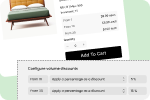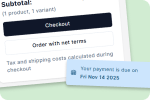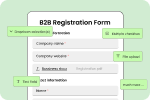B2B wholesale suppliers in Europe sell bulk goods sourced from manufacturers at discounted rates to businesses – mainly retailersfor resale. They operate via online platforms or direct channels, often offering lower MOQs and faster regional shipping than global suppliers. Leading examples like Europages, eWorldTrade Europe, Tradekey… Europe simplify EU-wide procurement across categories from fashion to electronics.
Establishing reliable partnerships with European wholesale suppliers is critical for companies seeking to expand their product offerings, enhance supply chain efficiency, and capitalize on emerging market opportunities.

Why Europe is an ideal B2B wholesale hub
Europe stands out as a premier hub for B2B wholesale due to its deep-rooted presence in trade and manufacturing, backed by a global reputation for master craftsmanship and stringent quality control standards. The continent boasts a robust logistics infrastructure, including advanced road networks, railways, ports, and airports – logistics hubs such as Rotterdam, Hamburg, and Antwerp facilitate seamless and rapid movement of goods globally.
Europe’s strategic position and established industrial base uniquely position it to serve customers expanding product lines or entering new markets, offering a combination of reliability, quality, and innovation.
Economically, the European B2B market is projected to reach a staggering USD 11,262 billion by 2030, growing at a compound annual growth rate (CAGR) of 22.3%. This impressive growth trajectory aligns with the rapid rise in B2B online sales, which are expected to exceed USD 1.8 trillion across Europe by 2025 – highlighting the increasing digitalization and adoption of Ecommerce platforms in the B2B space.
Read more: 12 Best B2B Marketplaces In Europe For 2026
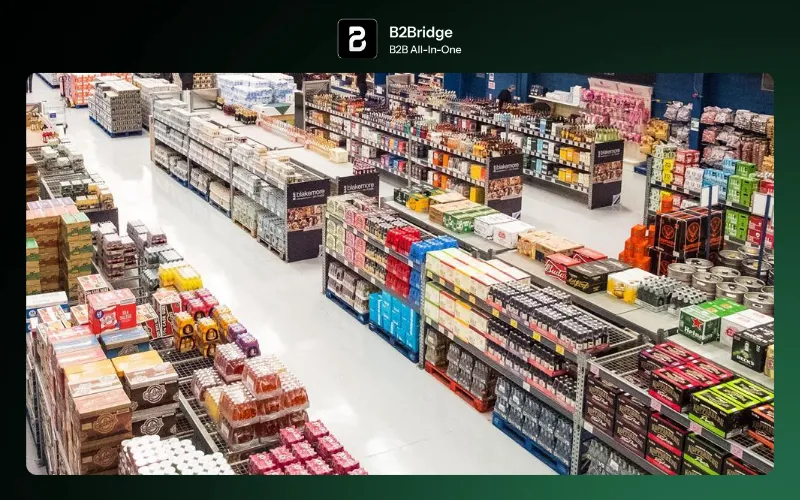
Key advantages of sourcing from B2B Wholesale in Europe
High-Quality Standards
European suppliers emphasize superior craftsmanship and adherence to stringent production standards. Many comply with internationally recognized certifications like ISO standards and CE marking, ensuring safety, health, and environmental protection. Textile suppliers often hold certifications such as the Oeko-Tex Standard 100, confirming the absence of harmful substances, while food suppliers follow strict traceability standards such as those set by the European Food Safety Authority (EFSA).
Regulatory Compliance
European regulations rigorously guard against unfair trading practices, protecting both businesses and consumers. Key regulatory frameworks include REACH, which controls the use of chemicals to ensure environmental and human safety, and the RoHS Directive, which restricts hazardous substances in electronics. Additionally, the General Data Protection Regulation (GDPR) enforces strict data protection and privacy for businesses operating within the EU, fostering a secure and ethical business environment.
Strong Logistics Infrastructure
Europe’s highly developed transport network enables efficient and cost-effective movement of goods. This infrastructure includes extensive road and rail connections, major ports such as Rotterdam and Antwerp, and well-equipped airports, allowing suppliers to offer short lead times and reliable delivery services. This robust logistics landscape lowers shipping costs and time, enhancing supply chain responsiveness and reliability.
Learn more: B2B Ecommerce in 2026: What It Is and How to Start
Top industries for B2B Wholesale in Europe
Textiles
The European textile industry remains a cornerstone of B2B wholesale, driven by increasing demand for sustainable and high-quality fibers. Organic textiles certified by organizations like GOTS (Global Organic Textile Standard) are especially sought after, reflecting consumer preference for environmentally friendly and socially responsible products. European textile suppliers emphasize transparency in sourcing and production methods, catering to businesses aiming to meet strict environmental regulations and ethical standards.
Electronics
Europe’s electronics sector is known globally for its stringent safety and quality standards, which underpin its reputation for innovation and cutting-edge technology. Wholesalers in this industry strictly comply with the RoHS Directive, which restricts hazardous substances in electrical and electronic equipment to promote environmental and human health. This focus on compliance combined with continual innovation makes European electronics a trusted choice for B2B buyers worldwide.
Automotive
As one of the largest global industries, the European automotive sector boasts rigorous safety standards, such as those set by Euro NCAP, and stringent environmental regulations exemplified by the Euro 6 emission standards. The sector includes manufacturing and wholesale of vehicles, parts, and accessories. Sustainability and technological advancement, including electric vehicles and advanced driver assistance systems, increasingly shape this industry’s wholesale dynamics.
Agriculture
Europe plays a vital role as both a producer and exporter in agriculture. The sector benefits from protective regulations such as Protected Designation of Origin (PDO) and Protected Geographical Indication (PGI), which safeguard the authenticity and quality of regional products. Additionally, the EU’s Common Agricultural Policy actively promotes sustainable farming practices and supports farmers with incentives aimed at environmental stewardship, reinforcing the industry’s long-term viability and appeal in B2B trade.
>> Explore more:
Vintage Wholesale Europe Review: Is It Worth Your Money?
CBD Wholesale Europe: Top 7 Suppliers & Distributors
Matcha Wholesale Europe: Top 5 Suppliers & Distributors
Perfume Wholesale Europe: 7 Best Distributors and Suppliers [Updated 2026]
Top 12 Stainless Steel Jewelry Wholesale Europe: Trusted Suppliers & Distributors
Other Popular Industries
Beyond the core industries, Europe’s B2B wholesale market encompasses a wide range of sectors, including:
- Fashion and Apparel: Known for combining trend-setting design with sustainable production.
- Food and Beverages: Featuring high safety and quality controls, with strong export networks.
- Cosmetics and Skin Care: Emphasizing natural ingredients, rigorous safety testing, and innovation.
- Industrial Machinery: Supplying equipment for manufacturing, construction, and energy sectors with a focus on efficiency and durability.
- Home Decor: Offering a blend of traditional craftsmanship and modern designs to cater to diverse tastes.
The 12 best B2B Wholesale Platforms/Suppliers in Europe for 2026
Below is a detailed breakdown of the 12 best B2B wholesale platforms and suppliers in Europe for 2026.
Europages
Europages is a long-standing and highly reputable B2B marketplace that stands out for its extensive reach across Europe and beyond. It serves as a comprehensive online directory and a powerful sourcing tool, connecting millions of companies in over 45 countries.
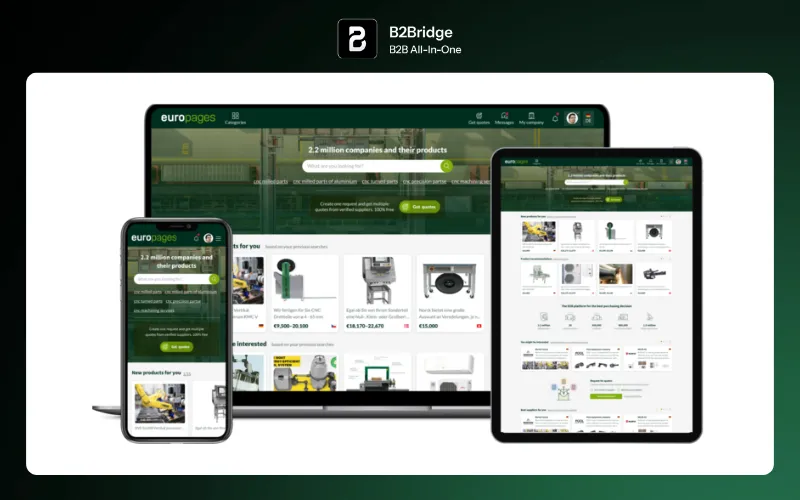
Europages focuses heavily on industrial equipment, chemicals, textiles, and food, making it a go-to platform for businesses in the manufacturing and trade sectors. Its key features include a robust multilingual search engine that breaks down language barriers, a detailed company directory, and an efficient Request For Quote (RFQ) system that streamlines the procurement process.
This platform is ideal for businesses looking to expand their network and source from a wide range of vetted, global suppliers.
eWorldTrade Europe
As one of the fastest-growing global B2B marketplaces, eWorldTrade has established a significant presence in the European market. It’s known for its commitment to providing a secure and transparent trading environment.
The platform offers a diverse range of products, with a strong focus on high-demand categories like electronics, apparel, home goods, and industrial equipment. eWorldTrade’s key features, such as supplier verification and trade finance, give businesses confidence in their transactions.
The platform also offers unique tools like online auctions for competitive pricing and a comprehensive company directory to help buyers find the right partners.
Tradekey Europe
Tradekey is a major global B2B marketplace with a strong emphasis on building a secure and trustworthy environment for international trade. It operates with a focus on mitigating risks for both buyers and sellers.
The platform’s product focus is broad, including electronics, machinery, chemicals, and textiles. Tradekey’s standout features include its thorough supplier verification process and trade insurance, which provide peace of mind for businesses engaged in international transactions. It also offers powerful tools for order management and a robust product search function, making it easy to navigate its extensive network of suppliers.
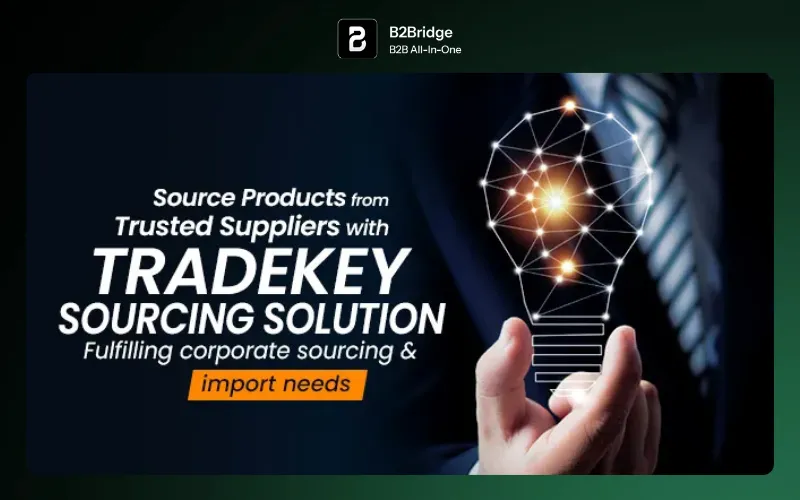
Solostocks Europe
Solostocks is a marketplace specifically tailored for European suppliers and buyers, offering a more localized approach compared to larger global platforms. This focus on the regional market can lead to shorter lead times and more direct communication.
The platform is particularly strong in machinery, industrial equipment, and various components. Key features of Solostocks include the ability for businesses to create their own product catalogs, generate customized quotes, and seamless integration with various Ecommerce platforms. This makes it a great choice for European businesses looking to streamline their supply chain with other regional partners.
Global Sources Europe
While a global B2B marketplace with deep roots in Asia, Global Sources has successfully bridged the gap to serve European businesses sourcing from the East. It is a vital platform for companies looking to import goods from Asian manufacturers with confidence.
Global Sources excels in categories such as electronics, gifts, home goods, and apparel. It differentiates itself with unique features like online exhibitions, product inspection services to ensure quality before shipment, and detailed sourcing guides to help buyers navigate the complexities of international trade.
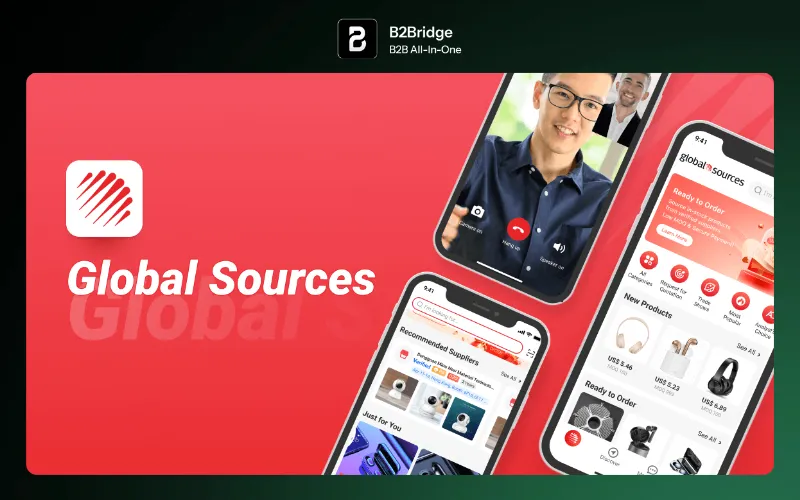
Wholesale Clearance UK
As the name suggests, this is a specialized UK-based marketplace focusing on surplus and overstock inventory. It’s an excellent resource for retailers looking for deeply discounted stock and clearance products to boost their margins.
The platform deals in a wide variety of goods, including electronics, apparel, home goods, and toys. Its primary features are centered around offering bulk buying options and consistently providing goods at highly competitive prices, making it a top choice for bargain-hunting businesses.
Merkandi
Merkandi is a leading European B2B platform dedicated to wholesale and surplus products. It gives buyers access to exclusive deals from liquidators, manufacturers, and distributors looking to offload excess inventory.
Merkandi’s offerings span a wide range of goods, from electronics and apparel to home goods and toys. Its key features include its focus on overstock and bankrupt stocks, a dynamic auctions system, multi-language support, and a commitment to secure transactions, allowing businesses across Europe to access liquidation deals safely and easily.
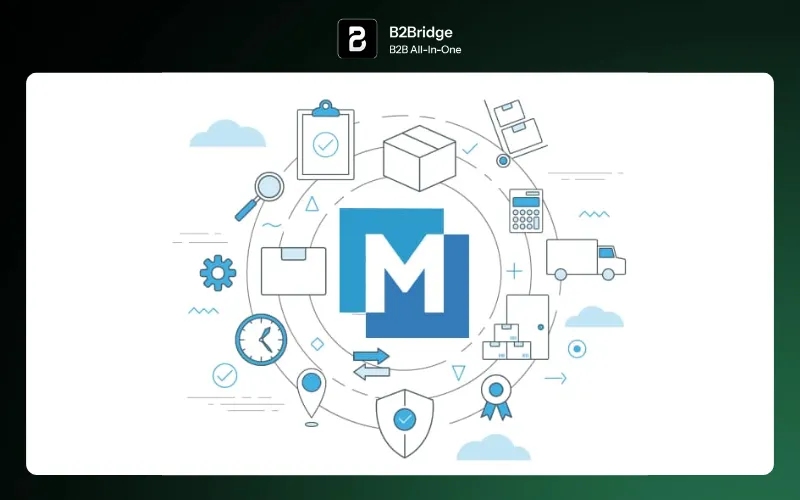
BigBuy
BigBuy is a comprehensive B2B dropshipping and wholesale supplier based in Europe, designed to streamline sourcing and fulfillment for online retailers. It is a one-stop-shop for businesses looking to get into dropshipping or traditional wholesale. Its product focus is broad, covering electronics, home goods, toys, and fashion.
BigBuy’s standout features are its dropshipping and private label services, a powerful RFQ system, and a comprehensive directory that allows for advanced item searching. It’s particularly valuable for Ecommerce entrepreneurs aiming to scale their operations efficiently.
B2B GRAFFITI
B2B GRAFFITI is a specialized marketplace with a clear focus on the fashion and lifestyle sectors. It connects brands and retailers within these niche markets, offering a curated selection of products.
The platform’s product focus includes fashion, accessories, and home decor. Its key features include offering exclusive wholesale products and a strong emphasis on niche markets, making it a great resource for boutiques and independent retailers who want to source unique and on-trend items from within Europe.
WholesaleDeals.co.uk
Similar to Wholesale Clearance UK, WholesaleDeals.co.uk is a UK-based marketplace that specializes in providing unbeatable wholesale deals and clearance products. It serves as a directory for traders and businesses to find new suppliers and profitable stock.
The platform’s product focus is diverse, ranging from electronics and home goods to toys and automotive products. Its main appeal lies in its ability to offer significant savings, making it a valuable tool for small businesses and resellers looking to increase their profit margins on a wide array of products.
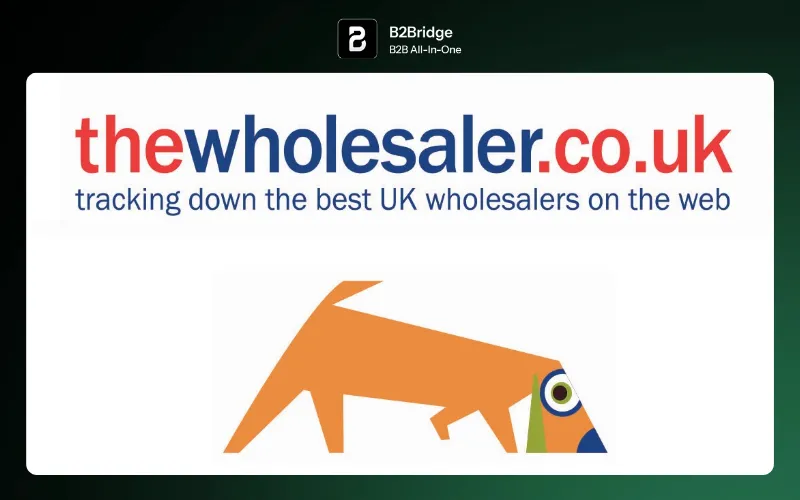
JOOR
JOOR is a premier global B2B trade platform, widely recognized as a leader in the fashion industry. It digitizes the wholesale process, connecting thousands of top fashion brands with retailers worldwide.
JOOR’s product focus is exclusively on wholesale fashion brands, from luxury designers to emerging labels. Its key features include the ability to seamlessly connect brands and retailers, facilitate bulk sourcing, offer flexible payment methods, and even highlight sustainable fashion options. It also hosts digital trade shows, providing a modern alternative to traditional fashion events.
Tradewheel.com
Tradewheel.com is a rapidly expanding global B2B marketplace that has developed a strong presence in the European market. It acts as a bridge between buyers and sellers from around the world.
The platform offers a highly diverse range of product categories, from industrial goods to agricultural food. Tradewheel.com’s core features include a vast network of suppliers, the ability to get multiple quotes with its RFQ form, and a strong focus on competitive rates and flexible Minimum Order Quantity (MOQ) options, making it accessible for businesses of all sizes.
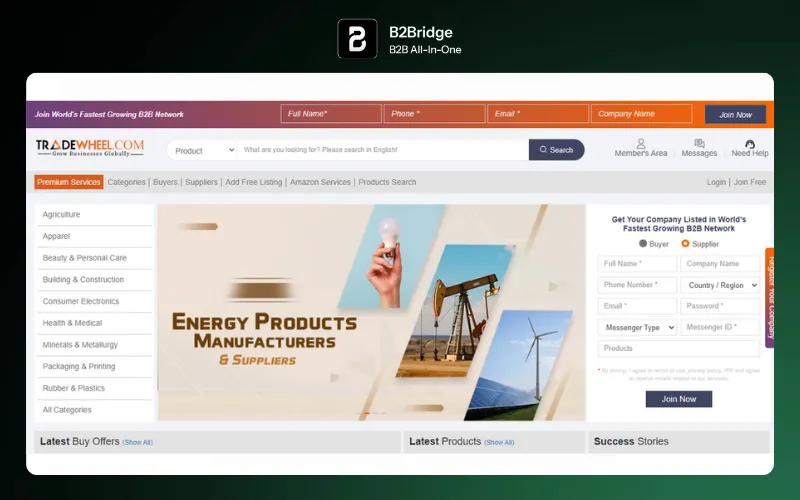
Tips for Partnering with European B2B Wholesalers
Vetting Suppliers and Ensuring Quality
To ensure product quality, you should scrutinize a supplier’s production processes and quality assurance. Conduct remote audits using video conferencing and document sharing, and request product samples before placing bulk orders. For an in-depth check, arrange factory walkthroughs or hire third-party inspection services like SGS or Bureau Veritas. Always verify documentation, especially ISO 9001 certification and the CE Mark label.
Understanding EU Trade Regulations
Familiarize yourself with European Union trade regulations to avoid customs issues. Accurately classify your products with the correct HS code to determine duties and tariffs. Be aware of Technical Barriers to Trade (TBT), which are regulations on product standards and packaging. Check if there are free trade agreements between the EU and your country to benefit from lower tariffs.
Negotiating Terms for Payment and Logistics
When negotiating, consider a variety of payment methods, including B2B payment systems, not just traditional bank transfers. Clearly define responsibilities for costs, risks, and documents using Incoterms (e.g., FOB, CIF). Evaluate different freight options (air, sea, road) based on cost, time, and environmental impact. Negotiate favorable payment schedules, such as net 30 or 60 terms, as a preferable alternative to paying a large percentage upfront.
General Tips for Success
- Market Research: Research B2B marketplaces to understand their rules, product demand, and supplier credibility. This helps you operate in a favorable environment and partner with reputable companies.
- Strong Relationships: Build trust and foster long-term relationships by offering reliable services and consistent communication. Dependability encourages repeat business and positive referrals.
- Multilingual Support: Gain a competitive edge by offering support in various languages. Choosing marketplaces with multilingual interfaces and support can help prevent misunderstandings and broaden your network.
- Strategic Pricing: Attract buyers with competitive prices and strategic discounts. Balance attractive pricing with a healthy profit margin to ensure your business remains sustainable.
- Excellent Customer Support: Provide responsive and proactive customer service. Quick issue resolution and clear communication show you are a reliable partner, which is key to great B2B relationships.
How to Start Your Own B2B Wholesale Business in Europe
Step 1: Thorough Market Research
Start by conducting in-depth market research to find a profitable product range and identify your target audience, whether they’re large chains or small local stores. Use market analysis tools to study competitor pricing, distribution networks, and market share to pinpoint gaps. Finally, create a detailed business plan that outlines all costs, including shipping, customs, storage, and local taxes.
Step 2: Choose the Right Business Structure
Your choice of business structure is crucial for your legal and financial future. An LLC (Limited Liability Company) is a good choice for small and medium-sized businesses because it’s relatively easy to set up. A Corporation is more complex but necessary if you plan to seek external investor funding. If you already have a business in another country, like Vietnam, a Branch Office can simplify tax reporting and operations.
Step 3: Tax Registration
Registering for the correct taxes is a mandatory step for operating in Europe. You will need to register for VAT (Value Added Tax), which is a consumption tax with rates that vary across European countries, typically ranging from 17% to 27%. You must also account for Corporate Income Tax, which also varies by country (e.g., Ireland’s rate is 12.5%).
Step 4: Business Bank Account
Open a dedicated business bank account in Europe with a reputable institution. Look for banks that offer good international transaction services, reasonable fees, and multilingual support to facilitate smooth operations across borders. Having a local bank account will simplify financial management and transactions with your European partners.
How to Partner with European Wholesalers Rightly
Partnering effectively with European wholesalers requires more than just sourcing products. It demands building transparent, reliable, and mutually beneficial relationships grounded in clear communication, shared values, and strategic alignment. The following guidelines will help you establish successful partnerships and optimize your wholesale operations in Europe:
Prioritize Transparency and Clear Communication
Transparency is the foundation of any strong wholesale partnership. Ensure your European supplier provides clear information about product specifications, pricing, lead times, quality standards, and policies related to returns and exchanges. Maintain open communication channels for prompt feedback and updates. Setting expectations upfront avoids misunderstandings and builds trust.
Choose Partners Aligned with Your Business Values and Goals
Look for wholesalers who share your commitment to quality, sustainability, and ethical business practices. Europe’s wholesale market increasingly values suppliers that adhere to sustainable sourcing, comply with regulations, and innovate responsibly. Partnering with such suppliers not only meets customer expectations but also positions your business for long-term success.
Leverage Digital Tools and Platforms to Enhance Collaboration
Many leading European wholesalers utilize advanced digital platforms that streamline ordering, inventory management, and customer support. Use these tools to track orders, manage product catalogs, and communicate effectively. Platforms offering multilingual support and automated Request-for-Quote (RFQ) systems can accelerate transactions and minimize errors.
Negotiate Clear Contracts with Defined Terms
Draft and agree upon contracts that clearly spell out terms regarding pricing, payment schedules, delivery timelines, quality standards, confidentiality, and dispute resolution. A solid contract protects both parties and ensures accountability. It also establishes a roadmap for handling unforeseen circumstances or changes in market conditions.
Evaluate and Build Long-Term Relationships
Routine evaluation of your partnerships based on key performance indicators (KPIs) such as delivery reliability, product quality, responsiveness, and pricing competitiveness helps in maintaining high standards. Nurture relationships through mutual respect and ongoing dialogue – long-term partnerships often translate to better pricing, priority service, and collaborative growth opportunities.
Best Wholesale European Products to Import
Europe is renowned for a diverse range of high-quality products ideal for wholesale import. Here are some of the best products to import in Europe:
- Textiles and Fashion Apparel: Known for exceptional craftsmanship, innovation, and sustainability, making them highly desirable worldwide.
- Electronics and Technology: Compliant with strict safety standards like the RoHS Directive, offering cutting-edge features and reliability.
- Automotive Parts and Accessories: Manufactured to meet Euro NCAP safety and Euro 6 emission standards, serving a large aftermarket demand.
- Food and Beverages: Products with Protected Designation of Origin (PDO) and Protected Geographical Indication (PGI) certifications, prized for authenticity and quality.
- Cosmetics and Skincare: Focus on natural ingredients and strict safety regulations, appealing to health-conscious consumers globally.
These categories represent some of the most profitable and trusted products to import from European B2B wholesale suppliers in 2026.
B2B Wholesale Suppliers Europe – FAQs
Q1: What types of products can I find on European B2B wholesale platforms?
A: European B2B wholesale platforms offer a wide variety of products including textiles, electronics, automotive parts, food and beverages, cosmetics, industrial machinery, and home decor.
Q2: How can I verify the reliability of a European wholesale supplier?
A: Check supplier reviews, request certifications or compliance documents (e.g., ISO, RoHS), use platforms with verified suppliers, and consider trade assurances offered by the marketplace.
Q3: Are there any language barriers when dealing with European suppliers?
A: Many top European B2B platforms offer multilingual support and communication tools to ease interactions, but it’s still beneficial to clarify language preferences early in negotiations.
Q4: What are the typical payment terms on these platforms?
A: Payment terms vary by supplier but often include methods such as bank transfers, PayPal, credit cards, and trade financing options. Always confirm payment terms before finalizing orders.
Q5: How does shipping and logistics work with European wholesalers?
A: Europe has efficient logistics infrastructure, so many suppliers offer quick shipping within the EU. International shipping times and costs vary, so clarify delivery options and timelines beforehand.
Q6: Can small businesses access these B2B platforms?
A: Yes, many platforms cater to both small and large businesses, offering flexible order quantities and pricing tailored to different business sizes.
Q7: What should I consider when choosing a B2B platform?
A: Evaluate product range, supplier verification processes, platform features (e.g., RFQ systems, digital catalogs), customer support, and payment/security options to find the best fit for your business.
Conclusion
Sourcing products from Europe ensures access to high-quality goods, cutting-edge designs, reputable brands, and dependable supply networks. By tapping into the strengths of European B2B wholesale markets, businesses can greatly improve their product offerings and effectively satisfy market needs. These B2B wholesale suppliers Europe present excellent opportunities for expanding business reach throughout Europe.

Hi, I’m Hanh – a product marketing professional passionate about driving growth, simplifying complex solutions, and creating impactful strategies for Shopify that connect products with customers.
